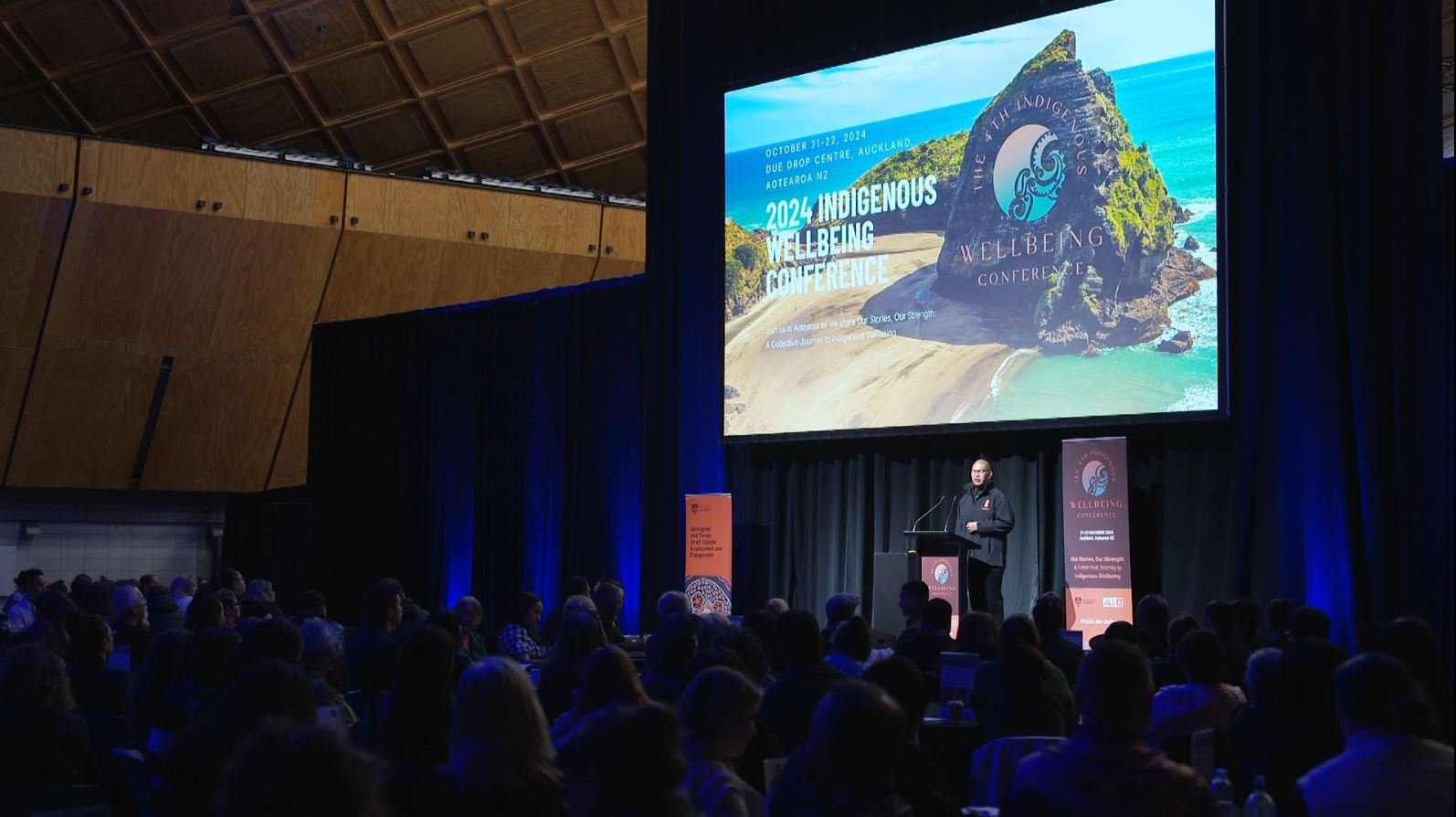Cultural resilience, identity preservation, and holistic wellbeing, were just some of the issues discussed during the two day Indigenous Wellbeing Conference held in Auckland recently.
With a focus on mental health and wellbeing, delegates from Australia, Canada, and the Pacific region looked at the importance of connection to country, culture, spirituality and ancestry and the roles they play in wellbeing.
Programme committee member and award winning author, Qiane Matata-Sipu says it is incredibly important to talk about wellbeing.
“It is always the time for us to be looking after each other to be prioritising our well being and to remember our indigenous practices that led us into these spaces.”
Of Maori heritage from the Waikato, Ngāpuhi and Ngāti Pikiao as well as Cook Islands heritage from Rarotonga and Mangaia, Matata-Sipu says communities are doing it tough and the impact on people’s mental health and wellbeing is being tested.
“Today we are under constant pressure, we’ve got the living crisis, we’ve got a government who doesn’t necessarily favour what we value as Maori and Pacifika people here in Aotearoa and all of these things cause us stress, reignite trauma.
“There’s so much poverty in our country at the moment and all of this has such an impact on our overall well being.”
Andrea Andrews is a Jawoyn woman from the Northern Territory in Australia. Alongside her colleagues, Andrea says the conference provides an opportunity to get more ideas and information from indigenous peoples.
“The work I do with my community is healing for our people and our children, making sure that they are in a safe environment back with family and connecting back to country and learning about their culture,” Andrews says..
“I’d like to know what other indigenous people all over the world are talking about and what their issues are and comparing it to what issues we have back in our communities,”
Delegates from Wellington Pasifika health organisations were also in attendance. Sailimalo Talosaga Vanilau from Whatu Ora Health Pasifika Porirua says, the conference has provided an opportunity to listen to perspectives from the Aboriginal communities and Indigenous peoples of Canada.
“So much information, but for me it’s just to be here to connect and listen to some of our inspiring lecturers…so I want to be able to soak up all the information just to learn, just to be here, connect and take something back to our little community back in Porirua.”
Medical practitioner Tuifa’asisina David Nickel who is a registered nurse with Pasifika Community Mental Health in Wellington says cultural competency is a must.
“Partnership is the key to moving forward to a better future for our Pasifika people, not only just listening; we can listen, that’s all good, but we need to listen and take into consideration what people are talking about, so we can move forward to the next generation to come forward.”
As for Matata-Sipu, she says it’s important to drive home the message that indigenous communities have knowledge and skills to make a difference in their communities.
“Our Pacifica people, our Maori people, our indigenous people around the world within our cultural practices we have the tools for wellness, we just need to go back to them and stop prioritising the western tools that have been fed to us over all of these years and actually remind ourselves that we know the answers intrinsically, so let’s continue to connect with each other to unpack those answers and remind ourselves of who we are.”













